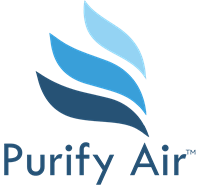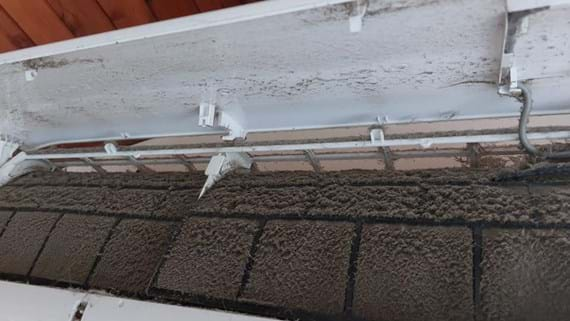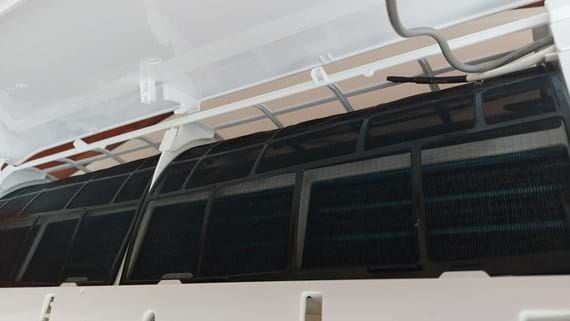Responsibilities of Tenants and Landlords for Air Conditioning Cleaning and Maintenance in Residential and Commercial Rental Properties
Air conditioning systems play a crucial role in maintaining comfort and indoor air quality in both residential and commercial rental properties. Proper maintenance of these systems is essential to ensure their efficient functioning and to prevent potential health and safety issues. The responsibilities for air conditioning cleaning and maintenance are typically divided between tenants and landlords, with distinct roles and expectations for each party.
Our latest blog examines the differences in responsibilities for air conditioning cleaning and maintenance in both residential and commercial rental properties.
Responsibilities of Tenants
1. Regular Cleaning and Filter Replacement:
Tenants are generally responsible for basic, day-to-day maintenance tasks such as cleaning or replacing air filters. Regular cleaning helps prevent the build-up of dust, dirt, and allergens within the system, which can affect indoor air quality and system efficiency. Tenants should be instructed on how often filters need to be cleaned or replaced and provided with clear guidelines for doing so. (usually once every 3 or 4 months)
2. Report Maintenance Issues Promptly:
Tenants are expected to promptly report any maintenance or performance issues with the air conditioning system to the landlord or property management. This includes issues such as inadequate cooling, unusual noises, or leaks. Timely reporting allows landlords to address problems before they escalate and cause further damage.
3. General Care and Preventive Measures:
Tenants should also take general care to ensure that the air conditioning system is not subjected to unnecessary strain. This includes keeping windows and doors closed when the system is running, not blocking air vents or registers, and avoiding excessive temperature fluctuations.
4. Usage and Energy Efficiency:
Tenants are responsible for using the air conditioning system in an energy-efficient manner. This involves setting appropriate thermostat temperatures, ideally around 24* in summer. Every degree cooler in summer and every degree warmer in winter adds more and more to the energy costs. Avoid excessive cooling and heating, and be mindful of energy consumption to prevent unnecessary strain on the system and reduce utility costs.
5. Residential Tenant:
If the Air Con unit is properly deep cleaned before the start of the tenancy then the tenant should be responsible for the cleaning maintenance of the AC unit after that and in the years following as they are the ones using it. If the previous tenant has not maintained the cleaning and hygiene of the AC unit, it is the Landlord's responsibility they do so before the new tenant moves in. A bond clean only cleans the filters, it does not normally include a proper deep clean of the AC unit.
6. Commercial Tenant:
As part of the commercial lease, the tenant of a commercial building is responsible for the cleaning and hygiene of all air conditioning on the premises at least once a year. This includes the filter cleaning and the deep cleaning of the AC units. If the previous tenant has not maintained the cleaning and hygiene of the AC unit, it is the Landlord's responsibility they do so before the new tenant moves in. A bond clean only cleans the filters, it does not normally include a proper deep clean of the AC unit.
Responsibilities of Landlords
Legislative Mould Update
Rental law changes introducing minimum housing standards came into effect for new tenancies (including renewed tenancy agreements) from 1 September 2023, and will come into effect for all remaining tenancies on 1 September 2024.
Minimum housing standards came into effect for new tenancies from 1 September 2023, meaning if a tenancy agreement is signed or renewed from this date, the property must meet minimum housing standards.
Minimum housing standards come into effect for all remaining tenancies from 1 September 2024. These new standards apply to all types of tenancies, including general tenancies, moveable dwellings, and rooming accommodation.
To comply with minimum housing standards, the property manager/owner must ensure the premises is free from mould when the tenant moves in and throughout the tenancy. The exception is if the mould is caused by the actions of the tenant.
If mould becomes present in a rental property, the tenant should notify the property manager/owner as soon as they are aware of the mould issue. THIS INCLUDES MOULD FOUND IN AIR CONDITIONERS.
Deciding who is responsible for cleaning mould and repairing any resultant damage depends on how the mould appeared in the first place.
If mould is a result of problems with the property (for example, a leaking roof, or water damage caused by leaking pipework), it is the property manager/owner’s responsibility to address the mould and make any necessary repairs.
If the tenant has caused the mould to appear (for example, by allowing steam to build up in a bathroom without proper ventilation and/or regular cleaning), they are responsible for cleaning it and paying for any damages that the mould has caused.
For more information, visit: https://www.rta.qld.gov.au/during-a-tenancy/maintenance-and-repairs/mould
1. Initial Maintenance and Inspection:
Landlords are typically responsible for ensuring that the air conditioning system is in proper working condition at the beginning of a lease term. This may involve inspecting and servicing the system, including cleaning coils, checking refrigerant levels, and verifying the functionality of components.
2. Regular Professional Maintenance:
Landlords are generally expected to arrange for regular professional maintenance of the air conditioning system. This maintenance may include lubrication and system inspections by qualified HVAC technicians. Regular maintenance helps extend the lifespan of the system and ensures optimal performance.
3. Repairs and Replacements:
Landlords are responsible for addressing major repairs or replacements of the air conditioning system. This includes situations where the system breaks down due to normal wear and tear. Landlords should respond promptly to tenant reports of malfunctioning systems and take appropriate actions to restore functionality.
4. Compliance with Local Regulations:
Landlords must ensure that the air conditioning system complies with local regulations and codes. This may include obtaining necessary permits, adhering to safety standards, and meeting energy efficiency requirements.
5. Communication and Documentation:
Landlords should provide tenants with clear information regarding air conditioning system operation, maintenance expectations, and emergency contact information for maintenance issues. Proper documentation of maintenance and repairs is essential for accountability and dispute resolution.
A good service provider will liaise between the tenant and property manager to organise a convenient time to carry out the cleaning and maintenance of the AC units in a timely fashion and provide a report on the works done, including before and after photos and a schedule for future cleaning and maintenance.
In both residential and commercial rental properties, the responsibilities for air conditioning cleaning and maintenance are distributed between tenants and landlords. Tenants are responsible for basic tasks such as regular filter cleaning and prompt reporting of issues, while landlords bear the responsibility for more comprehensive maintenance, repairs, and compliance with regulations. Effective communication between both parties is crucial to ensure that the air conditioning system remains in optimal condition, contributing to tenant comfort, indoor air quality, and overall property value.












